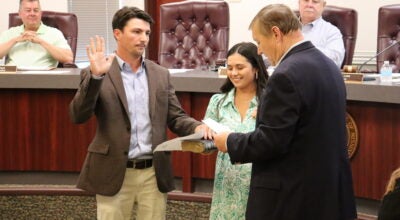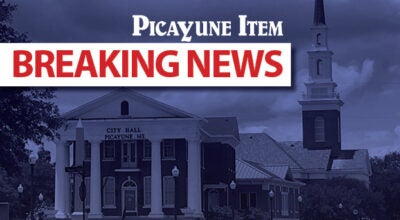Museum caters to local culture
Published 5:46 pm Thursday, February 6, 2014

Ozell Walls and Clinton Baker stand in the National Black History Room for the Carver Cultural Museum located in Picayune, Miss.
Photo by Jodi Marze
Defiantly anchoring an otherwise vacant Picayune Mall, the Picayune Carver Culture Museum,at 1308 S. Haugh in Picayune, showcases some of the area’s historical artifacts associated with Carver High School, Picayune and subjects associated with the nation’s black history, all separated by rooms.
The Carver Room contains artifacts, books, pictures, desks, graduation programs from 1943 to 1970, teachers’ pay scales, instruments, jerseys, band uniforms and more.
The Picayune room has pictures of African-American political leaders, business leaders and school pictures of children from 1954 to 1955, as well as, pictures of current and past businesses. The National Black History room has photos of President Obama and inventors and religious items.
The museum, begun by Clinton Baker, opened 2005. Baker said it was inspired by a piece that he read.
“I read something about a traveler,” Baker said. “The traveler asked an elderly man what happed to this specific group of people who were now extinct. The elderly man replied that they didn’t tell their story and they died.
“The museum is our way of telling our story. It will continue and live on.”
Baker, a former student of George Washington Carver High School, said that a part of Carver’s contribution to the community was the economic development on Rosa Sreet that it supported.
“Rosa Sreet had anything that you could possibly want,” he said.
“There were cleaners, grocery stores, a theater and restaurants. Carver generated its own economy and what was even more important to the whole of the community is the contribution of its students.
“If an actual student did not go out into the world and contribute to society in some way, it was their offspring that did. Carver produced teachers, attorneys, accountants and many other white-collar professionals.”
Baker is a former football player from Carver and part of the first “24” on the Carver football team.
He went on to become a police detective in Chicago, before coming back to Picayune.
“We have students come through this museum every Wednesday and I will tell them that the key to life is exposure and education. If you stay in a box and never get exposure to other people and ways of thinking, you will never go anywhere in this life,” Baker said.
“This is another reason why this museum is so important, it allows many people to ‘get out of their box’ without leaving Picayune.”
The museum is open Monday, Wednesday and Friday from 3 to 5 p.m. It is also open by appointment. Museum Curator Clinton Baker can be reached at 601-798-5512 for more information.




